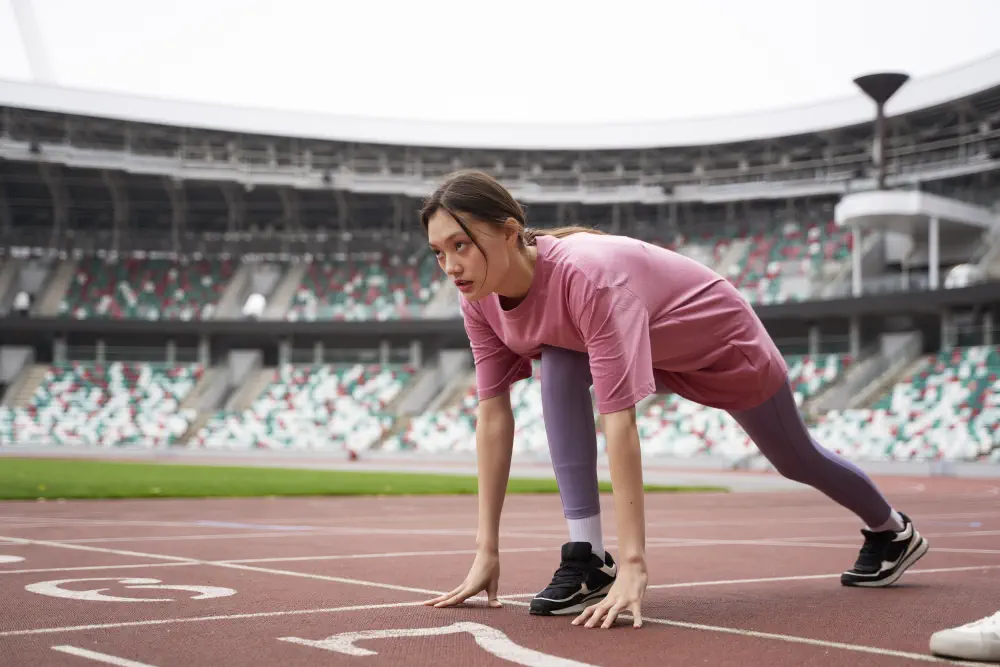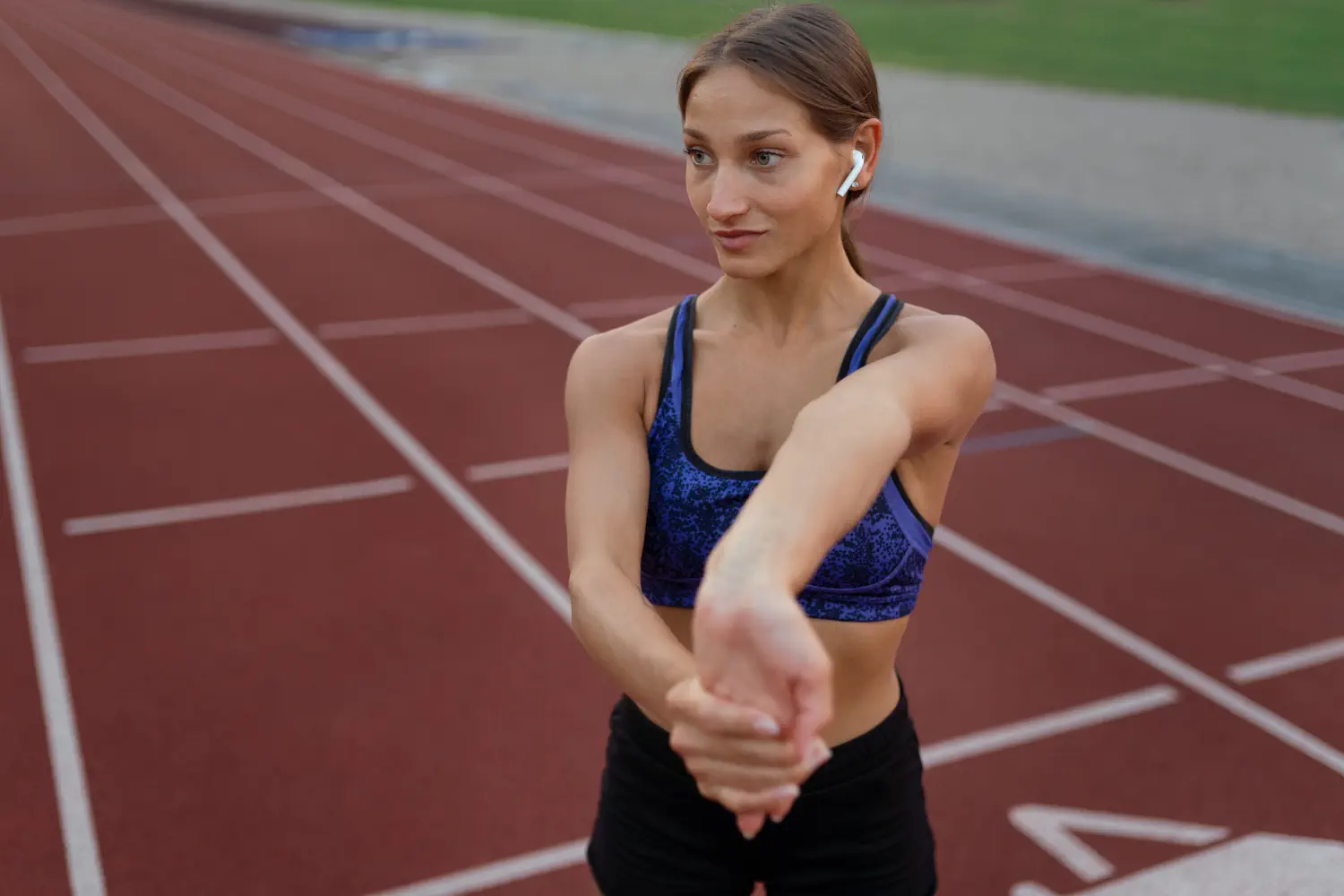We offer medical detox and multiple addiction treatment options in our
luxury treatment centres in Port Hope, Cobourg, and Ottawa.
How Does Alcohol Affect Athletic Performance
Did you know alcohol is the most commonly used drug? Athletes frequently turn to drinking for stress relief before competitions, pain management after games, or celebration following victories. Yet this widespread practice creates serious barriers to peak performance. Understanding how long does alcohol affect athletic performance helps athletes make informed decisions about their training and competition schedules.
Key Takeaways
- Performance Timeline: Consuming five or more drinks impacts athletic abilities for up to three days, affecting coordination, endurance, and decision-making during this critical period.
- Pre and Post-Exercise Effects: Alcohol ingestion before exercise reduces power output and reaction times, while consumption after exercise severely impairs muscle recovery and protein synthesis.
- Sleep and Recovery Disruption: Even moderate drinking disrupts deep sleep cycles and hormone production needed for muscle repair, extending recovery times significantly.
- Sport-Specific Impairments: Different athletic activities face unique challenges from alcohol consumption, with precision sports, endurance events, and strength-based activities each experiencing distinct performance declines.
The Dangers of Mixing Alcohol and Sports
Alcohol and sports performance create a dangerous combination that extends beyond simple impairment. Athletes face immediate risks during activity and long-term consequences that can derail careers.
Coordination suffers dramatically when alcohol enters your system. Motor skills deteriorate as the central nervous system slows down. Balance becomes unstable. Reaction times increase dangerously.
Endurance takes a significant hit from alcohol consumption. Your cardiovascular system struggles to deliver oxygen efficiently. Stamina drops noticeably during sustained activities.
Mental sharpness disappears when drinking affects brain function. Decision-making abilities decline rapidly. Strategic thinking becomes clouded during competition.
Dehydration accelerates with alcohol in your system. Electrolyte balance becomes disrupted. These factors combine to create dangerous conditions during physical exertion.
Student athletes face particular risks. Research shows 53.3% engage in binge drinking - that's 12.1% higher than non-athletic populations.

How Alcohol Affects Athletic Performance
Inside Tracker research reveals that five or more drinks in one day impacts athletic performance for up to three days. Regular drinking presents even more severe consequences for athletes seeking peak performance.
Many athletes mistakenly believe alcohol calories can fuel physical activity. This assumption proves false. Alcohol calories cannot transform into usable energy for muscles. Instead, they convert directly into fatty acids and stored fat tissue.
Your central nervous system experiences immediate suppression from alcohol. Energy levels drop substantially. Mental clarity becomes foggy. These effects persist long after the initial consumption period.
Endurance capacity decreases significantly with alcohol in your system. Oxygen utilization becomes less efficient. Performance suffers during any sustained activity.
How does alcohol affect muscle growth becomes clear when examining protein synthesis. Long-term consumption severely hampers muscle development. Binge drinking creates additional problems by lowering testosterone levels. This hormonal disruption prevents healthy recovery and muscle mass maintenance.
Temperature regulation fails when alcohol affects your system. Overheating becomes more likely during exercise. Heat-related illnesses pose greater risks.
Your immune system weakens with regular alcohol consumption. Illness frequency increases. Missing training sessions and competitions becomes more common.
Alcohol Ingestion Prior to Exercise
Pre-exercise drinking creates immediate performance barriers that affect every aspect of athletic activity. Power output decreases substantially when alcohol remains in your system before training or competition.
Reaction time slows significantly with alcohol ingestion before exercise. Split-second decisions become delayed. These delays can determine winning or losing in competitive situations.
Alcohol and exercise create conflicting demands on your cardiovascular system. Blood flow becomes less efficient. Oxygen delivery to working muscles decreases substantially.
Pre-exercise alcohol consumption increases injury risk substantially. Muscle control becomes less precise. Joint stability decreases. Protective reflexes slow down dangerously.
Blood sugar regulation becomes erratic with pre-exercise drinking. Energy availability becomes unpredictable. Performance crashes can occur unexpectedly during activity.

Alcohol Ingestion After Exercise
Post-exercise alcohol consumption severely disrupts the recovery process that athletes depend on for continued performance. Muscle protein synthesis decreases by up to 37% when alcohol follows training sessions.
Recovery time extends significantly when drinking follows exercise. Muscle repair processes slow down substantially. Next-day performance suffers as a result.
Glycogen replenishment becomes impaired with post-exercise alcohol consumption. Energy stores fail to restore properly. Subsequent training sessions suffer from inadequate fuel availability.
Growth hormone release decreases substantially when alcohol follows exercise. This hormone plays crucial roles in recovery and adaptation. Reduced levels mean slower improvement and longer recovery periods.
Sleep quality deteriorates when post-exercise drinking occurs. REM sleep becomes fragmented. Recovery processes that depend on quality sleep suffer significantly.
Alcohol's Effect on Sleep, Injury, and Hormones
Sleep architecture changes dramatically with alcohol consumption. Deep sleep stages become shorter and less restorative. REM sleep gets fragmented throughout the night. Even moderate consumption affects sleep patterns for several nights.
Injury healing slows substantially when alcohol affects your system. Collagen production decreases. Blood flow to injured areas becomes reduced. Inflammatory responses become prolonged and less effective.
Hormonal balance gets disrupted significantly with alcohol consumption. Testosterone production decreases in both men and women. Growth hormone release becomes impaired. These changes prevent optimal recovery and adaptation.
Protein synthesis rates drop substantially with alcohol in your system. Muscle repair processes slow down dramatically. Training adaptations become less pronounced. Strength and muscle mass gains suffer as a result.
Athletic Activities That Are Especially Affected by Alcohol
Different sports face unique challenges when alcohol and sports performance intersect. Precision-based activities suffer most dramatically from coordination and reaction time impairments.
Football and basketball require complex strategic thinking and memory recall. Alcohol impairs the hippocampus region responsible for memory formation. Play recognition becomes delayed. Strategic execution suffers during critical moments.
Endurance sports like triathlons demand optimal muscle recovery between training sessions. Alcohol consumption lessens repair abilities substantially. Performance during long events suffers dramatically.
Wrestling often requires cutting weight before competitions. Alcohol affects metabolism unfavorably and promotes weight gain. Competition eligibility becomes compromised.
Gymnastics requires exceptional balance and coordination throughout routines. Drinking reduces these capabilities substantially. Risk of serious falls and injuries increases dramatically.
Boxing involves frequent cuts and bruises that require efficient healing. Alcohol slows recovery processes substantially. Training interruptions become more frequent.
Bodybuilding demands consistent muscle growth and strength development. Alcohol consumption inhibits these processes significantly. Progress toward physique goals becomes severely limited.

Ditch the Alcohol and Improve Athletic Performance
Breaking free from alcohol dependency opens doors to authentic athletic achievement. Your natural performance capabilities can flourish without chemical interference. Peak physical condition becomes attainable through dedicated training and proper recovery.
Performance improvements begin within days of eliminating alcohol consumption. Energy levels stabilize and increase. Sleep quality improves substantially. Recovery between training sessions accelerates noticeably.
Mental clarity returns rapidly when alcohol leaves your system. Strategic thinking becomes sharper. Decision-making improves under pressure. Competitive confidence grows with consistent performance.
Muscle development accelerates without alcohol interfering with protein synthesis. Strength gains become more pronounced. Training adaptations occur more efficiently.
Athletic goals become more achievable without alcohol limiting progress. Training consistency improves substantially. Performance benchmarks become attainable. Competitive aspirations align with physical capabilities.
If alcohol has become a barrier to your athletic aspirations, professional support can help you reclaim your potential. The Canadian Centre for Addiction provides specialized treatment programs designed to address addiction while supporting your athletic lifestyle.
Our team understands the unique pressures athletes face. We offer comprehensive alcohol recovery services that preserve your training schedule while addressing substance use concerns.
Recovery doesn't mean abandoning your athletic dreams. Professional treatment creates pathways to enhanced performance and long-term success. Contact us at 1-855-499-9446 to explore how sobriety can elevate your athletic achievements.
FAQ
Does drinking alcohol affect athletic performance?
Yes, alcohol significantly impairs athletic performance through reduced coordination, slower reaction times, decreased endurance, and impaired muscle recovery processes.
What is the 20-minute rule for alcohol?
The 20-minute rule refers to how long it takes alcohol to reach peak blood concentration, but performance effects can last up to 72 hours after consumption.
Why is alcohol so bad for fitness?
Alcohol disrupts protein synthesis, impairs recovery, dehydrates the body, and interferes with sleep quality - all essential components of athletic performance and fitness progress.
Can alcohol be performance-enhancing?
No, alcohol cannot enhance athletic performance and consistently impairs physical and mental capabilities required for optimal athletic achievement.
Is it okay to drink as an athlete?
While occasional light consumption may not completely derail athletic careers, regular drinking significantly limits performance potential and increases injury risk for serious athletes.





